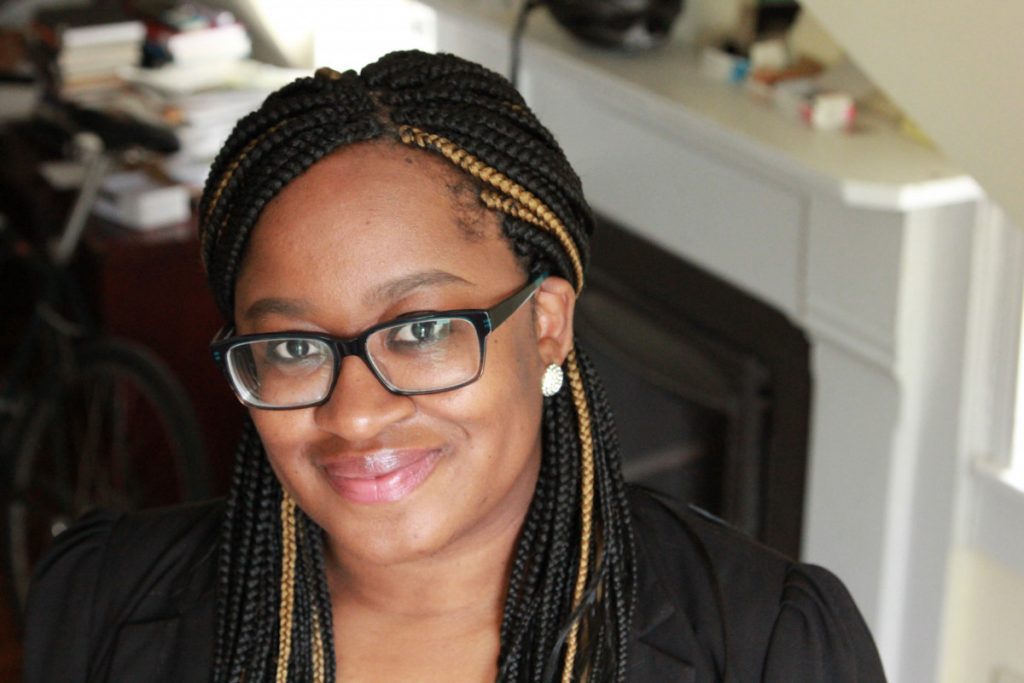NICK DANLAG – STAFF WRITER

Keisha N. Blain credits her mentors and professors at Binghamton University for getting her involved in Black feminism and Black feminist nationalism.
She read widely about Black nationalism and internationalism and felt unsatisfied with how much of the writing treated gender and excluded Black women, according to an interview with Roar. At 10:30 a.m. Wednesday, Aug. 25 in the Amphitheater, Blain will join the Chautauqua Lecture Series’ Week Nine’s Theme of “Resilience” for what Vice President and Emily and Richard Smucker Chair for Education Matt Ewalt described as a “frank discussion of resistance and resilience in the face of racism.”
Black women’s concerns, she said in her interview with Roar, are still sidelined in conversations about policing.
“While we know that the majority of Black people killed by police in the United States are young men, we distort the narrative when we only focus on Black men,” Blain said. Despite many high-profile murders, like that of Breonna Taylor, “there is still a perception among many Americans that Black women are somehow shielded from the threat of police violence.”
And she said there were many parallels between the uprisings after George Floyd’s murder and the past.
During several months of labor and race-related violence in East St. Louis in 1917, during which white people murdered as many as 150 Black people, law enforcement actually joined in with those attacking Black people, a relative of one of the victims told Blain. There are differences between now and then, however.
“The civil rights movement, for example, was certainly diverse, and we see that in groups like the Student Nonviolent Coordinating Committee (SNCC), an interracial civil rights organization. But that was not the case across the board,” Blain told Roar. “The widespread involvement of white Americans as well as Asian Americans, Latinx and others in today’s protests is significant and underscores how much has changed since the 1960s.”
Blain is the editor, along with Ibram X. Kendi, of Four Hundred Souls, which features 80 writers who each took a five-year period of the 400-year journey of African Americans from 1619 to the present, with “10 lyrical interludes from poets,” according to Blain.
Blain is an associate professor of history at the University of Pittsburgh and president of the African American Intellectual History Center. She is also a columnist for MSNBC, and her writing has been published by The Atlantic, The Guardian, Time, The Chronicle of Higher Education and many other publications. She is also the author of Set the World on Fire: Black Nationist Women and the Global Struggle for Freedom, which examines how Black nationist women engaged in politics from the early 1900s to 1960s.
In her columns for MSNBC, Blain has written about Black workers at an Amazon facility in Windsor, Connecticut, finding eight nooses around their work area; Black TikTok creators boycotting posting new dance routines after many of the dances they created went viral and they received no attribution; and President Joe Biden reversing President Donald Trump’s discriminatory housing policies.
In the housing column, she wrote about an incident on Aug. 1 in the city of Wyoming, Michigan, in which police handcuffed Eric Brown, an African American realtor, along with a client and the client’s 15-year-old son.
“The majority-white city of Wyoming — of which only 7.8% of the residents are Black — is not the only site of racial profiling and housing discrimination, a persistent problem the Biden administration is now working to address,” Blain said.
She then mentioned other incidents, such as a white man in Mount Laurel, New Jersey, who was arrested after harassing several of his neighbors of color by throwing rocks at them and smearing feces on their windows.
Blain also wrote that despite progress from the civil rights movement, housing remains a “racial battlefield” in the U.S., with housing discrimination keeping families of color out of many neighborhoods.
She then quoted Biden, who said “the federal government has a critical role to play in overcoming and redressing this history of discrimination and in protecting against other forms of discrimination by applying and enforcing Federal civil rights and fair housing laws.”




